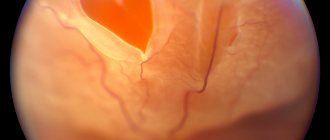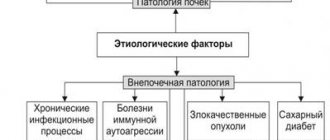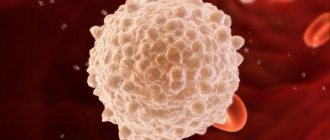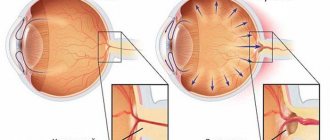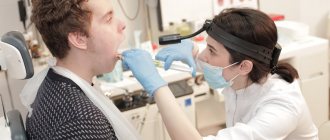Vesiculitis is a male urological disease associated with the inflammatory process of the seminal vesicles; it is also called spermacystitis. The seminal vesicles, testicles and prostate are the main organs on which spermatogenesis depends; in particular, the quality of sperm depends on these organs. It is in the seminal vesicles, in which the inflammatory process occurs in this disease, that the bulk (about 45-80%) of the fluid in the semen is produced. Which is the main component.
Urethritis and prostatitis are often concomitant diseases with vesiculitis. Which in turn can reduce the quality of sexual life and brings significant discomfort in everyday life. The main complication in the acute form of this disease is male infertility, which cannot be treated.
Seminal vesicles: what functions do they perform?
These are paired organs that are tubular gonads.
The vas deferens approach them. They are located next to the prostate gland, between the bladder and rectum. That is why any inflammatory processes in the genitourinary system can spread to the reproductive system, negatively affecting spermatogenesis. Seminal vesicles are small in childhood. They are fully formed during puberty. Throughout life, the size of the glands decreases. Normally, the length of the seminal vesicle is 5 cm, and the width should be no more than 2 cm. With inflammation, they increase.
The main functions of this body:
- Production of secretory fluid, which makes up up to 70% of the ejaculate.
- Participation in ejaculation.
- The production of special antigens that should prevent the female body’s immune response against sperm.
The inflammatory process in the seminal vesicles negatively affects the quality and activity of sperm. Potency disorders are possible.
Types of services provided
| Name of service | Cost, rub. |
| Spermogram | 1 990 |
| MAR test | 1 000 |
| Testicular biopsy | 20 000 |
| Nonspecific stimulation of spermatogenesis (1 procedure) - 1st complex | 1 500 |
| Nonspecific stimulation of spermatogenesis (1 procedure) - 2nd complex | 1 900 |
| Ultrasound urological expert | 2 500 |
Subscribe to news
Simplify your life - our newsletter will be useful to you.
What causes vesiculitis in men?
The main cause of most inflammation is infection. It can enter the seminal vesicles through the urethra, bladder and rectum. The causative agents are gram-negative bacteria, gonococci, staphylococci or Escherichia coli. The causes of most vesiculitis:
- chronic infectious diseases of the genitourinary system;
- venereal diseases.
Often, the infection can enter the seminal vesicles through the blood or lymph from other pathological foci in the body (lymphogenous infection). In this case, the cause may be any disease that has not been treated properly or has not been completely cured. For example, sore throat, flu, sinusitis, pneumonia.
Factors that significantly increase the risk of developing vesiculitis include:
- sedentary lifestyle, bad habits - smoking, alcohol. All this leads to stagnation of blood in the pelvic organs.
- hypothermia;
- long-term sexual abstinence;
- chronic constipation;
- prostate diseases;
- frequent practice of interrupted sexual intercourse;
- traumatic injuries of the perineum;
- unprotected sex and frequent changes of partners.
More rare forms include tuberculous vesiculitis. It always occurs against the background of tuberculous infection of the prostate and/or testicle.
Forms of the disease
Based on the severity and nature of the spread of the inflammatory process, the following clinical forms are distinguished:
- Paravesiculitis - inflammation affects not only the seminal vesicles, but also the tissues surrounding them, namely the subcutaneous fat. This is a serious complication of the deep form of spermatocystitis. High risk of developing impotence and infertility.
- Catarrhal or superficial form - the pathological process affects only the surface shell of the vesicles (vesicles). They increase in size and fluid or blood may accumulate inside.
- Deep vesiculitis - inflammation affects all submucosal layers of the organ. Possible formation of ulcers.
The disease occurs in acute and chronic forms. The main difference is the severity of symptoms. An abrupt onset and severe painful symptoms are characteristic of the acute period. And the chronic version arises as a complication. Symptoms are mild, the disease occurs in the form of exacerbations and remissions. There are also one-sided and two-sided forms. The latter is more common.
Vesiculitis in men: symptoms of pathology
This disease has no specific symptoms. Often the symptoms are similar to prostatitis. Only a doctor can accurately diagnose using diagnostic methods. Depending on the course of the pathology, manifestations may vary.
In the acute form, the patient complains:
- for fever and increased temperature;
- pain in the groin area or anus;
- frequent urination;
- increased pain when going to the toilet;
- general weakness;
- urine with blood.
The onset is always sharp and sudden. This stage lasts no more than 7–8 days. If you do not consult a doctor during this period, complications may occur. In a chronic course, the disease has mild manifestations. Because of this, a person can suffer for a long time from urination problems, discomfort in the groin, and erectile dysfunction. In this case, the reason to visit a doctor is the absence of pregnancy in the partner, as well as ejaculation disorders and changes in sperm quality.
Important! Sometimes inflammation in the seminal vesicles can occur without any symptoms. In order to detect pathology in time, it is necessary to visit a urologist or andrologist for preventive purposes, especially after 35–40 years.
Medicines
Photo: otvetymamam.ru
The following groups of antibacterial agents are used in the treatment of vesiculitis:
- fluoroquinolones (ciprofloxacin). They have a bactericidal effect, which is achieved by inhibiting two vital enzymes of the microorganism (DNA gyrase and topoisomerase IV), as a result of which DNA synthesis is disrupted. While taking these antibacterial drugs, the following side effects may develop: nausea, heartburn, rarely single vomiting, loss of appetite, periodic abdominal pain, sleep disturbance, headache, paresthesia, tremor, and occasionally convulsions. It is important to note that fluoroquinolones are ototoxic, which is why long-term use of high doses of these drugs is strictly prohibited;
- nitrofurans (furazidin, nitrofurantoin). These antibiotics, depending on the concentration, can have both bacteriostatic and bactericidal effects. The mechanism of action is to inhibit the biosynthesis of nucleic acids, and these antibiotics also disrupt the process of cellular respiration of bacteria. As a rule, drug resistance of microorganisms rarely develops to nitrofurans. The following undesirable reactions of the body that occur during the use of antibacterial agents of the nitrofuran series are distinguished: nausea, diarrhea, transient increase in transaminases, drowsiness, headache, periodic dizziness, dry cough, itching;
- cephalosporins (ceftriaxone, cefotaxime, cefoperazone, cefepime). The mechanism of action is to disrupt the synthesis of the cell wall of the microorganism, resulting in its death. Cephalosporins are distributed in many tissues, organs and secretions, which makes it possible to use them for various diseases of bacterial etiology. While taking cephalosporins, the following side effects may appear: nausea, vomiting, periodic abdominal discomfort, increased transaminase activity, and occasionally convulsions, which usually appear when using high doses of antibiotics in people with impaired renal function. The presence of an allergy is indicated by the appearance of a characteristic rash, itching, swelling, and breathing problems;
- penicillins (ampicillin, amoxicillin). The mechanism of action is to disrupt the synthesis of the bacterial cell wall, which leads to their death. Penicillins are distributed in many internal organs, tissues and biological fluids. Large concentrations of the drug are found in the lungs, kidneys, intestinal mucosa, pleural and peritoneal fluids, as well as in the organs of the reproductive system. In some cases, while taking penicillins, the following side effects occur: headache, nausea, vomiting, periodic abdominal discomfort, mainly in the epigastric region, diarrhea, tremor, and occasionally convulsions.
Additionally, phlebotonics (Normoven, Troxevasin, Vasoket) can be prescribed, which increase the tone of the veins and improve lymph outflow. In addition, these products improve blood circulation, thereby reducing congestion. As a rule, the development of side effects that occur while taking these medications is extremely rare.
If necessary, non-steroidal anti-inflammatory drugs (NSAIDs) are used, which have the following effects: antipyretic, analgesic and anti-inflammatory. The mechanism of action of these drugs is to inhibit the enzyme COX (cyclooxygenase), as a result of which the synthesis of prostaglandins from arachidonic acid is disrupted. Representatives of NSAIDs include:
- diclofenac;
- nimesulide;
- ibuprofen;
- meloxicam.
People with diseases of the gastrointestinal tract should treat these drugs with caution, since long-term use of these drugs, especially in large doses, leads to an exacerbation of existing diseases.
How to cure chronic vesiculitis
It is impossible to determine inflammation externally during examination, so a spermogram, pelvic ultrasound, and rectal examination are prescribed. The doctor also collects and studies the patient’s medical history. With timely treatment, the prognosis is favorable.
Drug therapy
Since the main cause of the disease is pathogenic bacteria, the basis of treatment is antibacterial drugs. A combined approach is often used, that is, the doctor prescribes 2 or 3 medications from different groups. To relieve pain, take analgesics with anti-inflammatory effects. If necessary, antimicrobial therapy is added.
If congestive vesiculitis is detected, treatment includes taking angioprotectors. They are aimed at improving blood circulation and strengthening the walls of blood vessels. After the acute period is over, physiotherapy is prescribed - UHF, electrotherapy, as well as physical therapy.
To improve health and prevent relapse, it is recommended to take vitamins and immunomodulators.
Other conservative treatments
These include:
- Heat therapy - using a heating pad, sitz hot baths. Heat compresses can be used independently during the lull of the disease. Sea salt is added to the bath, as well as herbal infusions of chamomile, calendula or sage.
- Microenemas with novocaine - for pain relief, with herbal extracts - for quick relief of inflammation.
- Mud therapy.
- Mineral baths (balneotherapy).
- Prostate massage. It is carried out only by a doctor in a clinical setting.
It is important during the treatment period to follow a certain diet. All spicy dishes, spices, pickles, and vinegar are excluded from the menu. All these products only intensify inflammatory processes. All drinks containing alcohol are strictly prohibited. Dairy and vegetable products, cereals are allowed. Meat and fish can be eaten, but preferably boiled or steamed.
Surgery
In case of complicated vesiculitis, as well as in the event of ulcers or accumulation of pus, surgical intervention is performed. The abscess is opened and cleared of purulent contents. In rare cases, vesiculectomy is performed, that is, partial or complete removal of the seminal vesicles.
Surgery may also be recommended if several courses of drug therapy are ineffective. Rehabilitation after surgery takes several weeks.
Folk remedies
Among traditional medicine, the leading positions are always occupied, of course, by herbs, herbal mixtures and various kinds of lotions, compresses and decoctions based on medicinal herbs.
- An infusion of sage, burdock root, and St. John's wort has antibacterial, antifungal, wound-healing, analgesic and immunostimulating effects.
- To strengthen the immune system, you should take tinctures of Echinacea and Eleutherococcus. These drugs increase the body’s overall resistance and provide additional strength to fight infection.
- Patients are recommended to take long-term decoctions of medicinal herbs: nettle, calendula, fennel, yarrow, horsetail. They have anti-inflammatory, antimicrobial, sedative, metabolic, and immunostrengthening effects.
Also, warm sitz chamomile baths relieve inflammation, irritation and reduce skin sensitivity, and activate immune defense mechanisms.
How to prevent illness from occurring
The main prevention is for a man to take care of his health. It is necessary to consult a doctor in time if you have urological problems. Follow all instructions and complete the prescribed course of treatment to the end. It is also necessary to eliminate all factors that provoke the disease. Recommended:
- To live an active lifestyle. This will help avoid stagnation of blood in the pelvis. It is necessary to arrange regular physical exercise during a sedentary work schedule.
- Avoid constipation. Eat a healthy diet, eat more grains and plant foods.
- Do not abuse alcohol, but it is better to give it up altogether.
- Have a regular sex life. This has a beneficial effect on general well-being and the state of the reproductive system.
- Use a condom for casual sex.
- Do not expose the body to sudden changes in temperature. Dress for the weather.
If you have chronic urogenital pathologies, visit your doctor at least 2 times a year. Timely detection and treatment of vesiculitis allows you to preserve men's health into old age.
